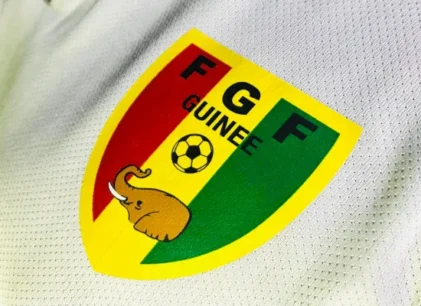As a last resort, the Cameroon Football Federation is ordered to pay more than 1,600,000 euros to former Indomitable Lions coach Antonio Conceiçao.
Another legal defeat for Samuel Eto’o and the Cameroon Football Federation (Fécafoot). The Swiss Federal Court has just upheld the decision of the Court of Arbitration for Sport (CAS) in the case pitting Cameroon against Antonio Conceiçao.As a last resort, the Fécafoot was ordered to pay over 1,600,000 euros (over one billion CFA francs) to the former coach of the Cameroon national team, Antonio Conceiçao, for “unfair dismissal” in February 2022.
Fécafoot had attempted to overturn this decision by filing a petition with the Swiss Federal Court. Unfortunately for them, this attempt failed. “The appeal is rejected”, the Swiss court ruled. In addition, Fécafoot has been ordered to pay the legal costs, set at 16,500 Swiss francs (17,095 euros). The latter will pay Antonio Conceiçao 18,500 Swiss francs (12,574,344 CFA francs or 19,167 euros) in costs.
The contours of the Antonio Conceiçao case
In this complex case, Fécafoot raised several arguments to challenge the CAS decision of May 8, 2023. Firstly, Fécafoot had argued that Antonio Conceiçao’s dismissal was justified by his failure to meet his contractual obligation to win the 2021 African Cup of Nations or reach at least the final. CAS rejected this argument, stating that the respondent was not under any obligation to achieve such a result, and that he had fulfilled his contractual obligations by reaching third place in the competition.
The Swiss Federal Court carefully examined Fécafoot’s arguments, but ultimately rejected its request. The court pointed out that Fécafoot was in fact attempting to challenge CAS’s interpretation of the employment contract, which was inadmissible in these proceedings.Furthermore, the Tribunal found that CAS had not violated the principle of contractual fidelity, as it had interpreted the contract in a manner consistent with the result of its interpretation.
The question of the financial obligations arising from the employment contract was also discussed, with Fécafoot claiming that these obligations fell exclusively to the Cameroonian Minister of Sport. However, CAS concluded that the contractual relationship bound the respondent to Fécafoot, and not to the state authorities. Finally, Fécafoot criticized CAS for failing to respect its right to be heard and for taking an unpredictable decision.
CAS beyond reproach (?)
The Swiss Federal Court rejected these arguments, stressing that CAS had not violated any principle in its arbitration of the case.“On reading the arguments developed by the interested party [Fécafoot, editor’s note], it is clear that the latter is attempting, under cover of an alleged infringement of its right to be heard, to attack the result of the arbitrators’ interpretation of the employment contract binding the parties. It goes without saying that such an approach is doomed to failure in international arbitration”, according to the Swiss Federal Supreme Court.





